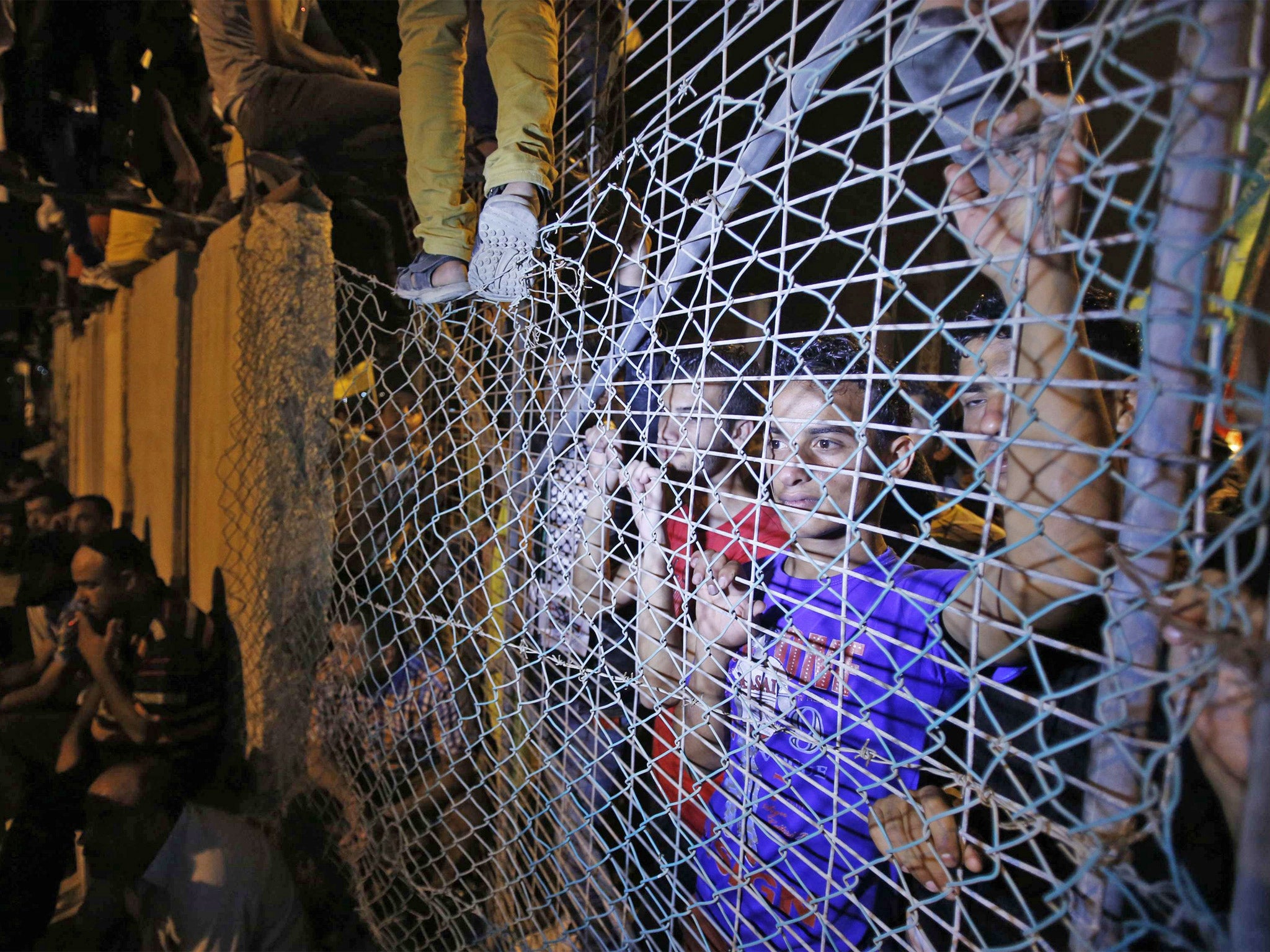Peace talks at risk as Israel approves 900 more settlement homes despite Palestinian prisoners release
Long-awaited negotiations near collapse before they start - even as release of Palestinian prisoners begins
Your support helps us to tell the story
From reproductive rights to climate change to Big Tech, The Independent is on the ground when the story is developing. Whether it's investigating the financials of Elon Musk's pro-Trump PAC or producing our latest documentary, 'The A Word', which shines a light on the American women fighting for reproductive rights, we know how important it is to parse out the facts from the messaging.
At such a critical moment in US history, we need reporters on the ground. Your donation allows us to keep sending journalists to speak to both sides of the story.
The Independent is trusted by Americans across the entire political spectrum. And unlike many other quality news outlets, we choose not to lock Americans out of our reporting and analysis with paywalls. We believe quality journalism should be available to everyone, paid for by those who can afford it.
Your support makes all the difference.The long-awaited resumption of Israeli-Palestinian peace talks was threatened with collapse last night after Israel approved the building of 900 new homes for Jewish settlers in East Jerusalem – the latest in a wave of construction plans that has inflamed tensions ahead of the fragile negotiations.
Substantive peace efforts are due to resume in Jerusalem today for the first time in more than three years, after Israel began to release a group of 26 Palestinian prisoners last night.
According to reports, Israeli prison service vehicles transported 15 prisoners to the Erez crossing with the Gaza Strip and 11 others to Ofer prison, near Ramallah in the West Bank, from which they were to be taken through the Bitunya crossing into Palestinian Authority territory.
That move was supposed to bolster Palestinian support for the US-brokered diplomacy, but it has been overshadowed by the disclosure since Thursday of Israeli proposals for more than 3,000 new settler units, including 1,200 in East Jerusalem and new settlements in the West Bank announced on Sunday.
Yasser Abed Rabbo, a senior official with the Palestine Liberation Organisation, said the approval of thousands of homes for Jewish settlers could bring about the "collapse" of the talks. "This settlement expansion is unprecedented," Mr Abed Rabbo said. "It threatens to make talks fail even before they have started."
Close to 560,000 Israeli nationals now live in the West Bank and East Jerusalem in violation of the Fourth Geneva Convention. Israel occupied those areas in the 1967 war and considers its rule of East Jerusalem as reflecting a "liberation" of the area and its Jewish holy sites.
The surge in construction plans is intensifying Palestinian criticism of President Mahmoud Abbas's decision to return to peace negotiations with Israel without securing a freeze on further settlement.
The 900 homes will include an extension of East Jerusalem's Gilo settlement towards the West Bank town of Beit Jala. Israel considers Gilo, which is built on land expropriated from the Palestinians of Beit Jala, an integral part of its capital.
Palestinians believe the new buildings will reinforce a wedge of settlement that separates Arab areas of East Jerusalem and the Bethlehem area in the West Bank. "This [move] means that Israel is determined to force its position,'' said Jad Ishaq, director of the Applied Research Institute Jerusalem, a non-governmental organisation that monitors settlement activity. "There is a shortage of land in Beit Jala and this should be land on which Beit Jala expands."
Efrat Orbach, a spokeswoman for the Israeli interior ministry, confirmed that approval had been given to expand Gilo. She said more approvals were needed and it could be years before building began. But Israel's Peace Now organisation disputed this, saying that construction could begin within weeks.
Mark Regev, a spokesman for the Prime Minister, Benjamin Netanyahu, said Palestinians should not be surprised by the plans since Israel had rejected Mr Abbas's demand for a freeze on settlement building as a precondition for talks. "They knew that a freeze was unacceptable and they entered the talks nevertheless," he added.
Mr Regev said the building plans were for areas "which will remain part of Israel in any final status agreement" and therefore they did not undermine negotiating prospects.
The US Secretary of State, John Kerry, speaking before the disclosure, took a softer line than his predecessors on Israeli plans for settlement expansion, saying it was "to some degree expected". He appeared to be referring to the idea that Mr Netanyahu is under pressure to appease his far-right coalition partners in order to counterbalance the decision to re-enter peace talks and to release Palestinian captives. Mr Kerry urged Palestinians "not to react adversely" to news of more settlements.
However, Mr Abbas is now in an increasingly untenable position. "He told us he wouldn't go to the negotiations without a freeze of settlements," said Hassan Khreisheh, deputy speaker of the Palestinian Legislative Council.
"This is against the will and the wishes of most Palestinians except for Yasser Abed Rabbo, [chief negotiator] Saeb Erekat and Abbas. There is a crisis of legitimacy for them. Their existence depends on negotiations, though all know that nothing can come from negotiations under these circumstances."
Abdullah Abdullah, a member of the legislative council and a supporter of Mr Abbas, said Palestinians would not stay in the talks if Israel continued with the settlement surge. "We have other options," he said.

Join our commenting forum
Join thought-provoking conversations, follow other Independent readers and see their replies
Comments